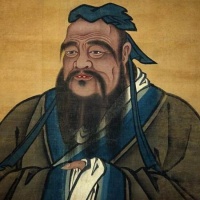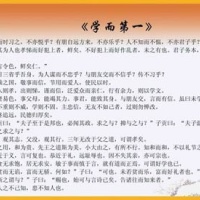- Home Page
- Fact Tours
Our sample tour itineraries of China and China travel packages are sorted by theme and available at competitive prices, you can browse what tours are right for you for your trip to China.
Popular China Tour Packages

Custom Tour Packages to China and Ask Our Experts for Free Enquiry !
- Coach Tours
- Destinations
Beijing, the capital of China. Its art treasures and universities have long made it a center of culture and art in China.
Beijing Top Attractions
Beijing City Tours
Best China Tours with Beijing
Shanghai, the cultural and economic center of East Asia. It renowned for its historical landmarks, the extensive and growing skyline.
Shanghai Top Attractions
Shanghai City Tours
Best China Tours with Shanghai
Xi'an, having held the position under several of the most important dynasties. It is the top destination to explore the facts of Chinese history.
Xi'an Top Attractions
Xi'an City Tours
Best China Tours with Xi'an
Huangshan boasts its culture, beautiful rivers, villages and mountains. It's home to 2 UNESCO World Heritage Sites and the Mecca of photographers.
Huangshan Top Attractions
Huangshan City Tours
Best China Tours with Huangshan
Sichuan is the cradle of the Shu culture, panda, mahjong, teahouse and spicy food. The province ranks first in China by number of UNESCO World Heritage Sites. It is called "the Heaven of Abundance".
Sichuan Top Attractions
Sichuan Tour Packages
Best China Tours with Sichuan
Yunnan, literally means the south of colorful clouds, due to its beautiful landscapes, mild climate and diverse ethnic cultures and traditions, is one of China's major tourist destinations.
Yunnan Top Attractions
Tibet, the nearest land to the sky, is known for its breathtaking landscape, splendid culture, art, buildings, and mysterious religions.
Tibet Top Attractions
Tibet Tour Packages
Best China Tours with Tibet
Explore the lost civilizations by riding a camel! Travel across the Gobi and the desert, and over the high mountains. Our Silk Road tours including different sections of the Silk Road in China.
Silk Road Top Attractions
Silk Road Tour Packages
Best China Tours with Silk Road
Guilin, an internationally-known historical and cultural city, has long been renowned for its unique karst scenery. Its vicinities are the paradise of hiking, caving, rafting, biking and countryside exploring.
Guilin Top Attractions
- China Facts
- China Hotels
- Travel Photos
Religions and Beliefs
Chinese Confucianism
Confucianism (Rujia Sixiang)
More a philosophy than a religion, Confucianism has nevertheless become intertwined with Chinese religious beliefs.
With the exception of Mao, the one name which has become synonymous with China is the Confucius (Kongzi). He was born of a poor family around the year of 551 BC, in what is now Shangdong province. His ambition was to hold a high government office and to reorder society through the administrative apparatus. At most he seems to have had several insignificant government posts, a few followers and a permanently blocked career.
 A the age of 50 he perceived his divine mission, and for the next 13 years tramped from state to state offering unsolicited advice to rulers on how to improve their governing, while looking for an opportunity to put his own ideas into practice. That opportunity never came, and he returned to his own state to spend the last five years of his life teaching and editing classical literature. He died in 479BC, aged 72.
A the age of 50 he perceived his divine mission, and for the next 13 years tramped from state to state offering unsolicited advice to rulers on how to improve their governing, while looking for an opportunity to put his own ideas into practice. That opportunity never came, and he returned to his own state to spend the last five years of his life teaching and editing classical literature. He died in 479BC, aged 72.
The glorification of Confucius began after his death. Mencius (372-289BC), or Mengzi, helped raised Confucian ideas into the national consciousness with the publication of The Book of Mencious.
Eventually, Confucian philosophy permeated every level of Chinese society. To hold government office presupposed knowledge of the Confucian classics, and spoken proverbs trickled down to the illiterate masses.
During the Han Dyansty, Confucianism effectively became the state of religion - the teachings were made the basic discipline for training government officials and remained so until almost the end of Qing Dynasty in 1911.
In the 7th and 8th centuries, temples and shrines ere built in memory of Confucius and his original disciples. During the Song Dynasty, the Confucian bible, the Analects, became the basis of all education. It is not hard to see why Confucianism took hold in China. Confucianism defines codes of conduct and patterns of obedience. Women obey and defer to men, younger brothers to elder brothers, and sons to fathers. Respect flow upward from young to old, from subject to ruler. Certainly, any reigning Chinese emperor would quickly see the merits of the encouraging such a system.
 All people paid homage to the emperor, who was regarded as the embodiment of Confucian wisdom and virtue - the head of the great family-nation. For centuries administrations under the emperor lay in the hands of a small Confucian scholar class. In theory anyone who passed the examinations qualified, but in practice the monopoly of power was held by the educated upper classes.
All people paid homage to the emperor, who was regarded as the embodiment of Confucian wisdom and virtue - the head of the great family-nation. For centuries administrations under the emperor lay in the hands of a small Confucian scholar class. In theory anyone who passed the examinations qualified, but in practice the monopoly of power was held by the educated upper classes.
There has never been a rigid code of law, because Confucianism rejected the idea that conduct could be enforced by some organization; taking legal action implied an incapacity to work things out by negotiation. The result, however, was arbitrary justice and oppression by those who held power. Dynasties rose and fell, but the Confucianism pattern never changed. Indeed, is still holds true in today's China.
The family remains its central place as the basic unit of society; Confucianism reinforced this idea, but did not invent it. The key to family order is filial piety - Children's respect for and duty towards their parents. Teaming up with traditional superstition, Confucianism reinforced the practice of ancestor worship. Confucius himself is worshipped and temples are built for him. The strict codes of obedience were held together by these concepts of filial piety and ancestor worship, as well as by concept of 'face' - to let down the family or group is a great shame for Chinese.
In its early years, Confucianism was regarded as a radical philosophy, but over the centuries it has become to be seen as conservative and reactionary. Confucius was strongly denounced by the Communists as yet another incorrigible link to the bourgeois past. During the Cultural Revolution,
Confucian temples, statures and Confucianists themselves took quite a beating at the hands of government has softened its stance, perhaps recognizing that Confucianism are still be an effective instrument of social control. Confucian temples (particularly the ones at Qufu iin Shangdong province) are now being restored.
Questions & Comments
Home | About Us | Partnerships | Terms & Conditions | Privacy & Security | Payment Guide | Resource Links| Sitemap
Email: contact@chinafacttours.com, Tel: +86-773-3810160, Fax: (+86) 773-3810333
Copyright © 2008-2022 China Fact Tours. All rights reserved
![]()









